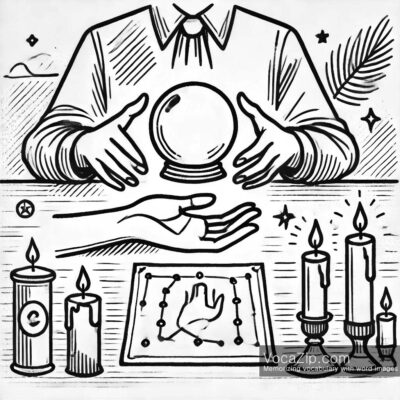fate meaning
fate :
destiny, fortune
noun
▪ She believes it is her fate to become a teacher.
▪ She believes it is her destiny to become a teacher.
▪ His fate was sealed by his actions.
▪ His destiny was determined by his actions.
paraphrasing
▪ destiny – fortune
▪ karma – destiny
▪ fate – destiny
▪ destiny – fortune

Pronunciation
fate [feɪt]
The noun is pronounced 'fate' with a long 'a' sound.
Common phrases and grammar about fate
fate - Common meaning
noun
destiny, fortune
Part of Speech Changes for "fate"
▪ fateful (adjective) – relating to fate
▪ fatality (noun) – death caused by something
Common Expressions with "fate"
▪ accept one's fate – to agree with what will happen
▪ sealed by fate – determined by destiny
▪ change your fate – make destiny different
▪ tragic fate – a sad destiny
Important examples of fate in TOEIC
Vocabulary examples from the TOEIC test
In TOEIC word questions, fate refers to destiny or what will happen in the future that cannot be changed.
Example of a confusing word: faith (belief or trust)
Grammar examples from the TOEIC test
In TOEIC grammar questions, fate is used as a noun and may require correct subject-verb agreement or usage in a sentence.
fate
Idioms and fixed expressions in TOEIC
meet one's fate
to face what destiny has planned
fate is sealed
means destiny cannot be changed
Differences between similar words and fate
fate
,
destiny
differences
Fate is often seen as unchangeable destiny, while destiny can imply a path one is meant to follow but not necessarily unalterable.
fate
,
fortune – destiny
differences
Fate refers to destiny often seen as unchangeable, whereas fortune is more about luck or chance.
Words with the same origin as fate
The origin of fate
The word 'fate' comes from the Latin 'fatum', meaning destiny.
Word structure
It has the root 'fate' and no prefix or suffix.
Words with the same origin
The root of 'fate' is 'fat', meaning destiny. Words with the same root include 'fatal', 'fateful'.






